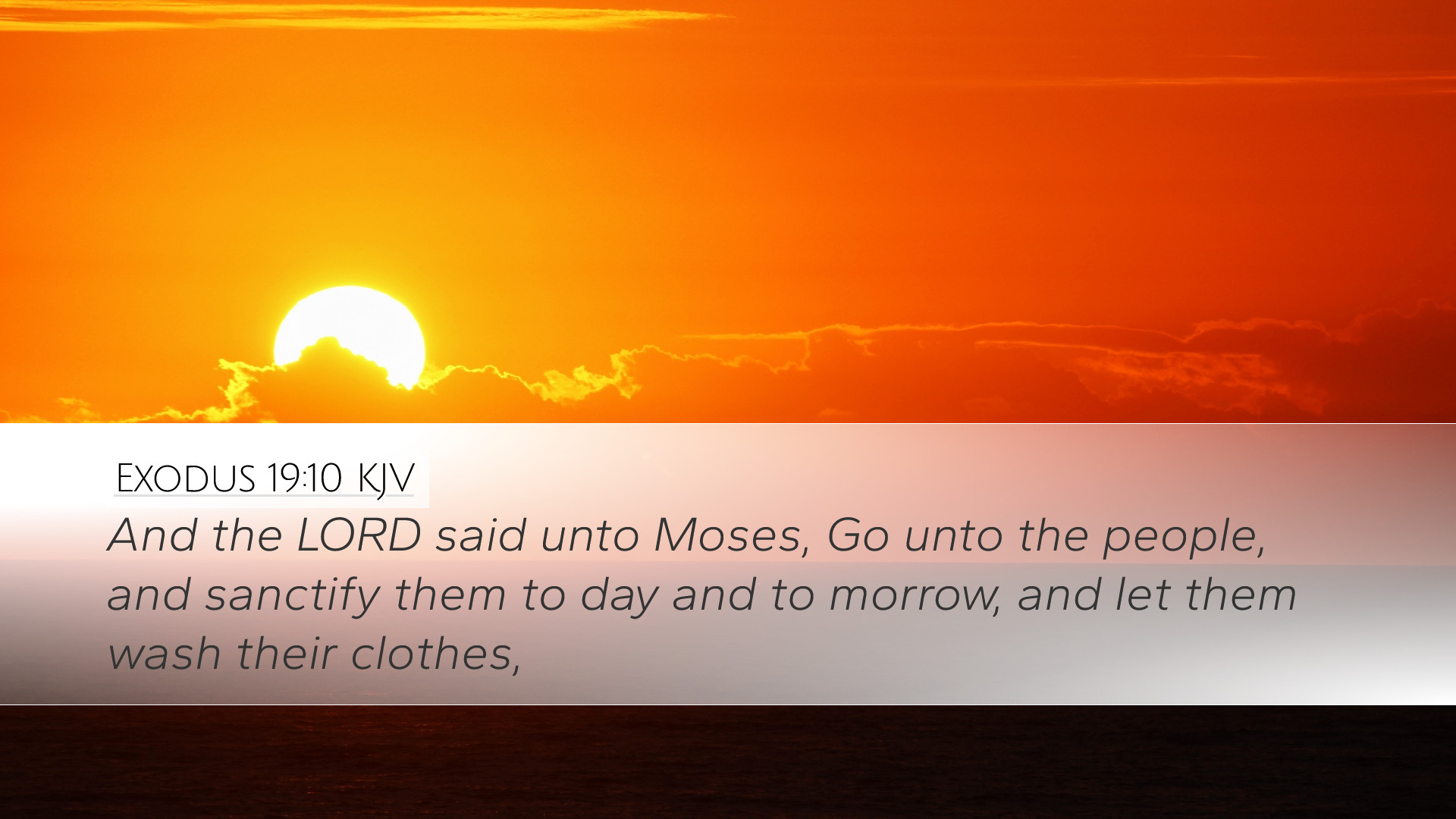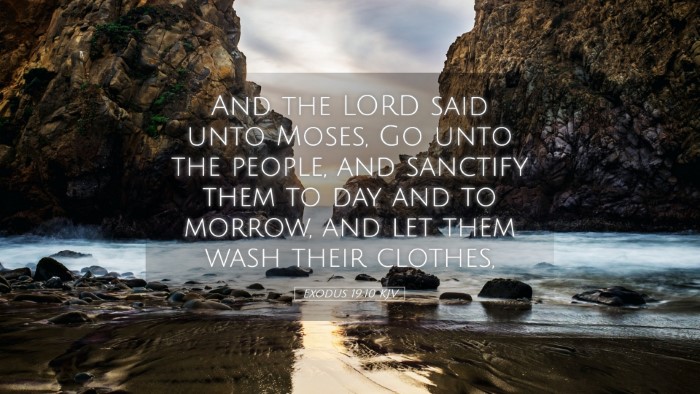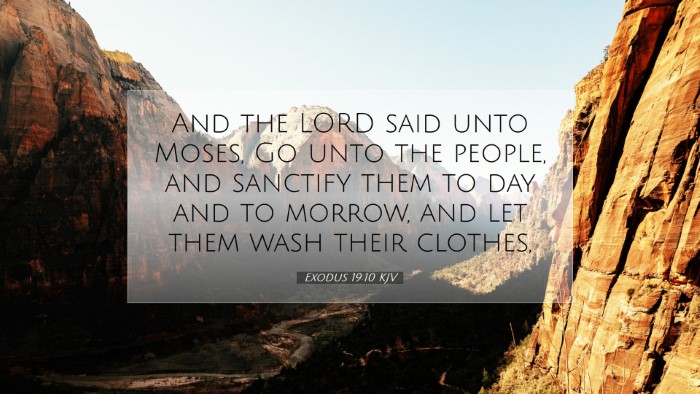Exodus 19:10 - Biblical Commentary
Verse: "And the LORD said unto Moses, Go unto the people, and sanctify them to-day and tomorrow, and let them wash their clothes."
Introduction
This verse is significant as it sets the stage for the Israelites' encounter with God at Mount Sinai. As they prepare to receive the Ten Commandments, the call to sanctification underscores the holiness of God and the necessary preparation for such an encounter.
Contextual Setting
The context of Exodus 19 reveals Israel in a transitional phase. They have been delivered from Egypt and are en route to their covenant relationship with God. This pivotal moment establishes the framework for Israel's identity as a holy nation.
Commentary Summary
Matthew Henry's Commentary
Henry emphasizes the necessity of sanctification as a means of preparing Israel for divine revelation. He points out that washing their clothes symbolizes the inward purification required to approach God. The act of sanctification is crucial as it illustrates the difference between the holy and the profane.
- Sanctification is a process: This verse highlights that it requires time - “to-day and tomorrow” - illustrating that preparing one's heart and life for God's presence is not an instantaneous act.
- Symbolism of Cleanliness: Washing clothes represents a broader concept of purity and holiness. It acts as a ritualistic cleansing that signifies a deeper spiritual readiness.
- Divine Instruction: The command from God signifies His authority, indicating that preparation comes from obedience to His word.
Albert Barnes' Notes on the Bible
Barnes elaborates on the importance of external symbols in relation to internal realities. The act of washing symbolizes that the people must not only prepare physically but must also be willing to purify their hearts.
- Washing Symbolizes Renewal: For Barnes, the washing of clothes can be seen as a metaphor for spiritual renewal. Each Israelite is invited to participate in the process of becoming a clean vessel for the Lord’s use.
- God's Demand for Holiness: The call to sanctify reflects God’s unyielding demand for holiness among His people, establishing a community distinct from their pagan neighbors.
- Time for Reflection: Barnes notes the stipulated time frame for preparation, which allows the people the opportunity to engage in reflection and repentance.
Adam Clarke's Commentary
Clarke discusses the theological implications of this command. He argues that the process of sanctification is not limited to physical actions but extends to the inner life of Israel.
- Holiness Before God: Clarke asserts that the call to wash clothes signifies a larger call to be holy before God, as He is Himself holy.
- Participation in Holiness: The act of sanctifying oneself is a communal effort, showing that God’s holiness is to be embraced by the entire community of faith.
- A Transition to Covenant: Clarke emphasizes that this preparation is vital as the people stand at the threshold of establishing a covenant relationship with God through the Law.
Theological Implications
Exodus 19:10 serves as a profound reminder of God's holiness and the requisite human response. It emphasizes how preparation to encounter God is both an individual and communal responsibility.
- The Nature of God: The necessity for sanctification illustrates God's holiness and the need for His people to reflect that holiness in their dealings.
- Application in Church Practice: The verse can be applicable in contemporary settings where preparation for worship and participation in the sacraments requires both external and internal readiness.
- Ongoing Sanctification: The theme of ongoing sanctification serves as an essential doctrine in both liturgical and pastoral contexts, indicating that believers are called to continual growth in holiness.
Conclusion
In Exodus 19:10, we find a call to preparation that resonates throughout the biblical narrative. The insights from various commentators reveal the intricate relationship between divine holiness and human responsibility. For pastors, students, theologians, and Bible scholars, this verse serves as a vital teaching point regarding the significance of purity, obedience, and the transformative power of divine encounters.


